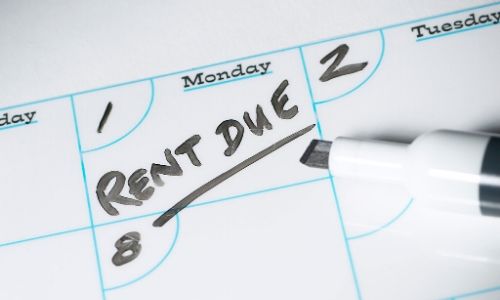From the battle cries of a rent strike to outright banning evictions, the response to renters’ rights during the pandemic has varied depending on what area your rental property is located. On the extreme end of COVID-19 related housing responses, California legislators have proposed a bill that could reduce rent by 25% and halt evictions until 2022. On the other hand, cities like Philadelphia and Houston have created rent relief programs that send the rent checks directly to the property owner. Keep your eyes peeled for these recent rent protection responses.
Updated 5/26/20: California's AB 828 is revised to remove 25% rent reduction.
From the battle cries of a rent strike to outright banning evictions, the response to renters’ rights during the pandemic has varied depending on what area your rental property is located. On the extreme end of COVID-19 related housing responses, California legislators have proposed a bill that could reduce rent by 25% and halt evictions until 2022. On the other hand, cities like Philadelphia and Houston have created rent relief programs that send the rent checks directly to the property owner. Keep your eyes peeled for these recent rent protection responses.
Updated 5/26/20: California's AB 828 is revised to remove 25% rent reduction.
California’s Proposed AB 828

AB 828 does a few things. First, it would prohibit foreclosures and suspend the sale of tax-defaulted rental properties during the COVID-19 related state of emergency (plus 15 days after the emergency has ended). County recorders would be prohibited from issuing a notice of default, sale, or a trustee’s deed upon sale during this time. It would also ban courts from accepting a complaint in a foreclosure action.

California’s Proposed AB 828
AB 828 does a few things. First, it would prohibit foreclosures and suspend the sale of tax-defaulted rental properties during the COVID-19 related state of emergency (plus 15 days after the emergency has ended). County recorders would be prohibited from issuing a notice of default, sale, or a trustee’s deed upon sale during this time. It would also ban courts from accepting a complaint in a foreclosure action.
Secondly, AB 828 would halt evictions, by prohibiting courts and the county sheriff from accepting unlawful detainer actions or executing a writ of possession during the state of emergency. If a tenant is unable to stay current on their rent due to COVID-19 (hence the unlawful detainer action), the court could require the resident to make monthly payments beginning the next calendar month. If passed, this would be in effect until January 1st, 2022.
*This bill originally had a provision requiring rent be reduced by 25% – this has been removed.
District of Columbia’s COVID-19 Renter Aid
On May 5, 2020, the Council of the District of Columbia passed the Coronavirus Omnibus Emergency Amendment Act of 2020. This act would require rental property owners with 5 or more units to develop a rental payment plan for “eligible tenants”. It further restricts filing for eviction, commercial rent increases, and amenity charges. This amendment act was signed into law on May 13, 2020.
New Jersey’s Security Deposits as Rent
In an executive order, Governor Phil Murphy has allowed renters to request their landlords to use their security deposit to make up any past due rent. This order prevents rental property owners from seeking another security deposit (if the prior deposit is used) until at least 6 months after the emergency ends or at the end of the lease.
Secondly, AB 828 would halt evictions, by prohibiting courts and the county sheriff from accepting unlawful detainer actions or executing a writ of possession during the state of emergency. If a tenant is unable to stay current on their rent due to COVID-19 (hence the unlawful detainer action), the court could require the resident to make monthly payments beginning the next calendar month. If passed, this would be in effect until January 1st, 2022.
*This bill originally had a provision requiring rent be reduced by 25% – this has been removed.
District of Columbia’s COVID-19 Renter Aid
On May 5, 2020, the Council of the District of Columbia passed the Coronavirus Omnibus Emergency Amendment Act of 2020. This act would require rental property owners with 5 or more units to develop a rental payment plan for “eligible tenants”. It further restricts filing for eviction, commercial rent increases, and amenity charges. This amendment act was signed into law on May 13, 2020.
New Jersey’s Security Deposits as Rent
In an executive order, Governor Phil Murphy has allowed renters to request their landlords to use their security deposit to make up any past due rent. This order prevents rental property owners from seeking another security deposit (if the prior deposit is used) until at least 6 months after the emergency ends or at the end of the lease.
Rent Relief Programs
While there have been calls to create renter relief programs for eligible renters who cannot pay their rent due to the virus, so far, these programs are few and far between. At present, below are a few of the areas that have created rent relief programs:
Rent Relief Programs
While there have been calls to create renter relief programs for eligible renters who cannot pay their rent due to the virus, so far, these programs are few and far between. At present, below are a few of the areas that have created rent relief programs:
Hawaii

The Department of Hawaiian Home Land’s (DHHL) COVID-19 Emergency Rental Assistance Program will provide Native Hawaiians who have lost their income due to COVID-19 as much as 6 months of rental assistance and funds for a security deposit. To qualify, applicants must be a Native Hawaiian, be on the DHHL’s housing waitlist, and have a household income that doesn’t exceed 80% of the federal median income. Financial assistance for mortgage payments is also available.

Hawaii
The Department of Hawaiian Home Land’s (DHHL) COVID-19 Emergency Rental Assistance Program will provide Native Hawaiians who have lost their income due to COVID-19 as much as 6 months of rental assistance and funds for a security deposit. To qualify, applicants must be a Native Hawaiian, be on the DHHL’s housing waitlist, and have a household income that doesn’t exceed 80% of the federal median income. Financial assistance for mortgage payments is also available.
Philadelphia, Pennsylvania
The City of Philadelphia has launched a COVID-19 Emergency Rental Assistance Program, which would pay the rent of about 3,000 households by making rent payments directly to the rental property owner. These payments cannot exceed $2,500 over three months, renters must have paid their rent before April, and landlord recipients will need to agree to not evicting recipients for at least 6 months after the city payments end.
Houston, Texas
The City of Houston has approved a $15 million COVID-19 rental assistance program. Starting on May 7th, rental property owners must enroll in the program at HoustonRentAssistance.org in order for their renters to apply for the funds. To qualify, owners must agree to waive all late fees and penalties occurred during April and May. Renters could start applying for rental assistance on May 13th and must be current on their rent prior to the month of April to qualify. They must have a median income of approximately $40,000 for one person or $60,000 for a family of four. Rental assistance could be up to $1,056 per month.
Philadelphia, Pennsylvania
The City of Philadelphia has launched a COVID-19 Emergency Rental Assistance Program, which would pay the rent of about 3,000 households by making rent payments directly to the rental property owner. These payments cannot exceed $2,500 over three months, renters must have paid their rent before April, and landlord recipients will need to agree to not evicting recipients for at least 6 months after the city payments end.
Houston, Texas
The City of Houston has approved a $15 million COVID-19 rental assistance program. Starting on May 7th, rental property owners must enroll in the program at HoustonRentAssistance.org in order for their renters to apply for the funds. To qualify, owners must agree to waive all late fees and penalties occurred during April and May. Renters could start applying for rental assistance on May 13th and must be current on their rent prior to the month of April to qualify. They must have a median income of approximately $40,000 for one person or $60,000 for a family of four. Rental assistance could be up to $1,056 per month.
Evictions, Rent Increases, and Late Fees

In March, many states, cities, and counties enacted orders banning charging late fees, increasing rent, or filing for unlawful detainer or executing writ of possession orders (evictions) during the outbreak. For areas with these limitations, it is likely that these restrictions have been extended. Some local governments (like Baltimore, Maryland or New York) have already expanded upon or are considering expanding upon their current rental housing prohibitions. Be sure to keep your eyes peeled on your local government’s housing restrictions at this time.

Evictions, Rent Increases, and Late Fees
In March, many states, cities, and counties enacted orders banning charging late fees, increasing rent, or filing for unlawful detainer or executing writ of possession orders (evictions) during the outbreak. For areas with these limitations, it is likely that these restrictions have been extended. Some local governments (like Baltimore, Maryland or New York) have already expanded upon or are considering expanding upon their current rental housing prohibitions. Be sure to keep your eyes peeled on your local government’s housing restrictions at this time.
Unfortunately, it doesn’t end here. As 2020 progresses (and probably 2021 as well), we’re going to see support for rental housing legislation ramp up, more COVID-19 related rent and eviction protections, and more. Subscribe to hear when it happens.
Unfortunately, it doesn’t end here. As 2020 progresses (and probably 2021 as well), we’re going to see support for rental housing legislation ramp up, more COVID-19 related rent and eviction protections, and more. Subscribe to hear when it happens.









